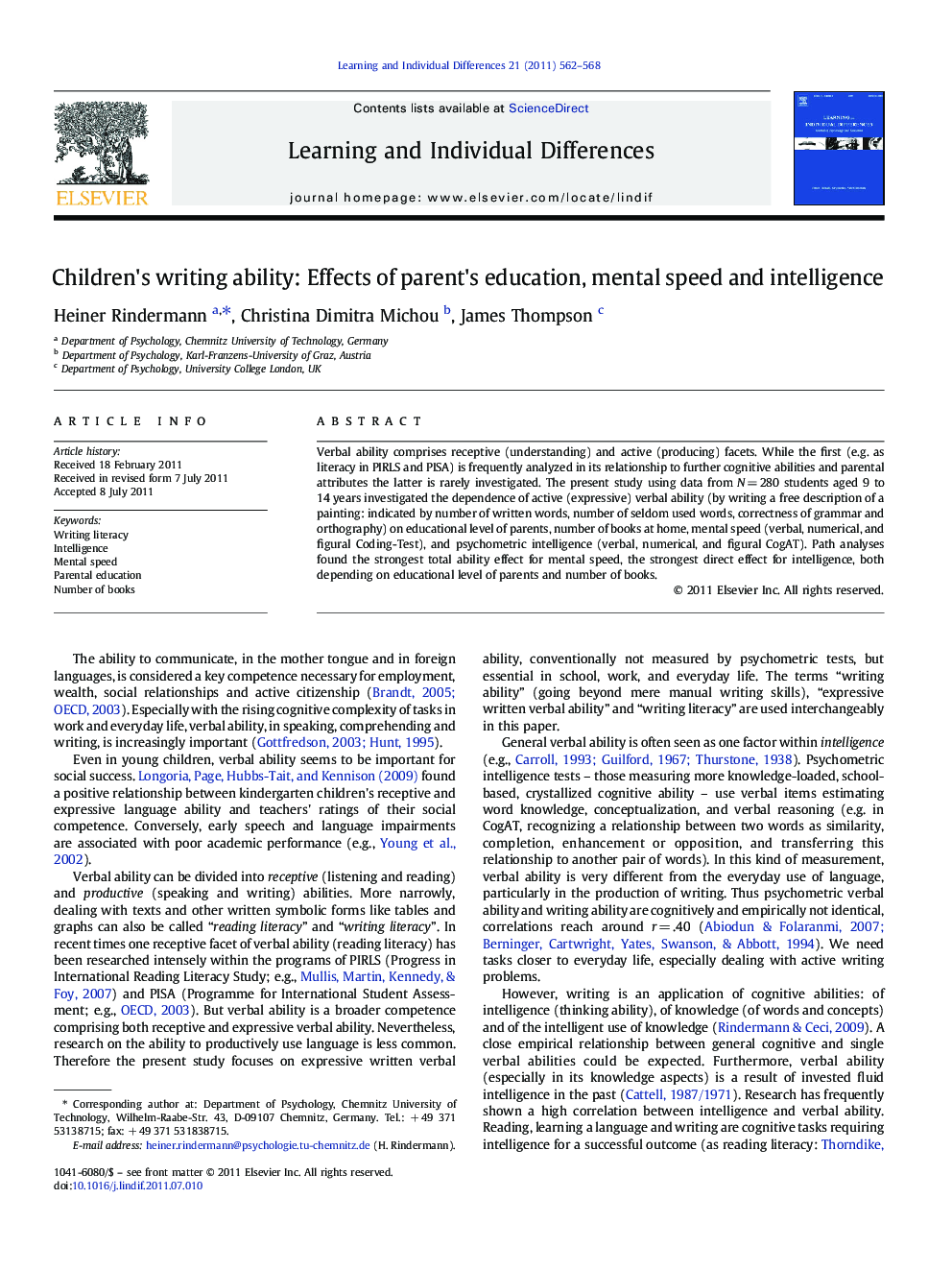| Article ID | Journal | Published Year | Pages | File Type |
|---|---|---|---|---|
| 364805 | Learning and Individual Differences | 2011 | 7 Pages |
Verbal ability comprises receptive (understanding) and active (producing) facets. While the first (e.g. as literacy in PIRLS and PISA) is frequently analyzed in its relationship to further cognitive abilities and parental attributes the latter is rarely investigated. The present study using data from N = 280 students aged 9 to 14 years investigated the dependence of active (expressive) verbal ability (by writing a free description of a painting: indicated by number of written words, number of seldom used words, correctness of grammar and orthography) on educational level of parents, number of books at home, mental speed (verbal, numerical, and figural Coding-Test), and psychometric intelligence (verbal, numerical, and figural CogAT). Path analyses found the strongest total ability effect for mental speed, the strongest direct effect for intelligence, both depending on educational level of parents and number of books.
► Writing ability (essay) is correlated with psychometric IQ (r = .46/ρ = .73). ► Writing ability depends on IQ, mental speed and parental education. ► The total effect of speed including through IQ is manifest β = .33 and latent β = .71. ► The total effect of parental education is manifest β = .23 and latent β = .47. ► Writing literacy as one facet of verbal ability depends on nature and nurture.
